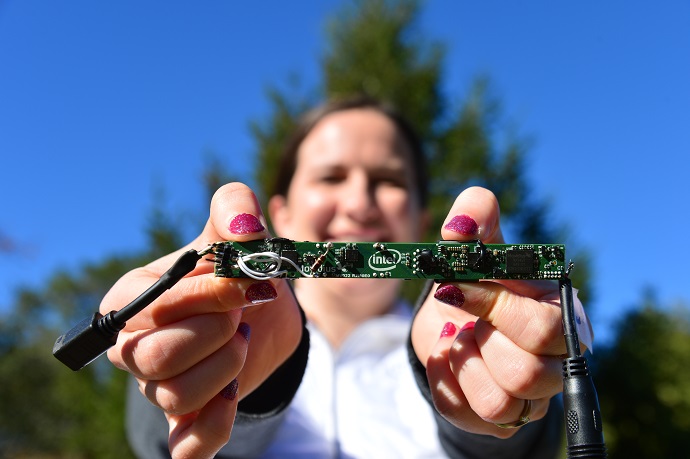 AI
AI
 AI
AI
 AI
AI
Intel Corp. says its Movidius artificial intelligence software will be used in special cameras designed to detect poachers who enter wildlife reserves, and prevent them from killing endangered animals.
Intel said today that its AI technology will be integrated with TrailGuard cameras that can detect objects and classify them automatically without human intervention, then send out an alert if they spot any suspect people or vehicles in protected areas.
A nonprofit organization called Resolve is planning to distribute the cameras to various wildlife reserves in Africa, South America and Southeast Asia. The National Geographic Society and the Leonardo DiCaprio Foundation are also involved in the effort.
The tiny cameras are not much bigger than a pencil, but are said to be both more effective and more efficient than existing antipoaching cameras. For one thing, the cameras effectively remain asleep most of the time, only waking up when they detect motion.
That allows the batteries to last for up to 18 months on a single charge. Moreover, the cameras will only send an alert when they see humans or a vehicle in the frame, limiting false positives caused by regular cameras that will trigger a warning whenever they detect motion, be it animals or humans.
“By pairing AI technology with human decision-makers, we can solve some of our greatest challenges, including illegal poaching of endangered animals,” Anna Bethke, Intel’s head of AI for social good, said in a statement. “With TrailGuard AI, Intel’s Movidius technology enables the camera to capture suspected poacher images and alerts park rangers, who will ultimately decide the most appropriate response.”
Officials say the cameras are needed because, despite best efforts, one elephant is killed by poachers every 15 minutes. That amounts to 35,000 elephants killed every year.
“Reckless human activity is causing species loss and extinction on an unprecedented scale, with recent reports showing that as many as 60 percent of all wildlife has been wiped out since 1970,” said Justin Winters, executive director of the Leonardo DiCaprio Foundation. “If illegal poaching of wildlife continues at the current rate, elephants are just one of the large mammal species that will be completely erased in our lifetime.”
This isn’t the first time that AI has been deployed in order to combat illegal poaching. In 2017, deep learning startup Neurala Inc. joined with the Lindbergh Foundation to use AI-powered drones to intercept poachers operating in Malawi and South Africa.
Intel said its cameras will initially be deployed throughout 100 wildlife reserves in Africa in 2019, starting with the Serengeti National Park in Tanzania and the Garamba National Park in the Democratic Republic of Congo.
THANK YOU